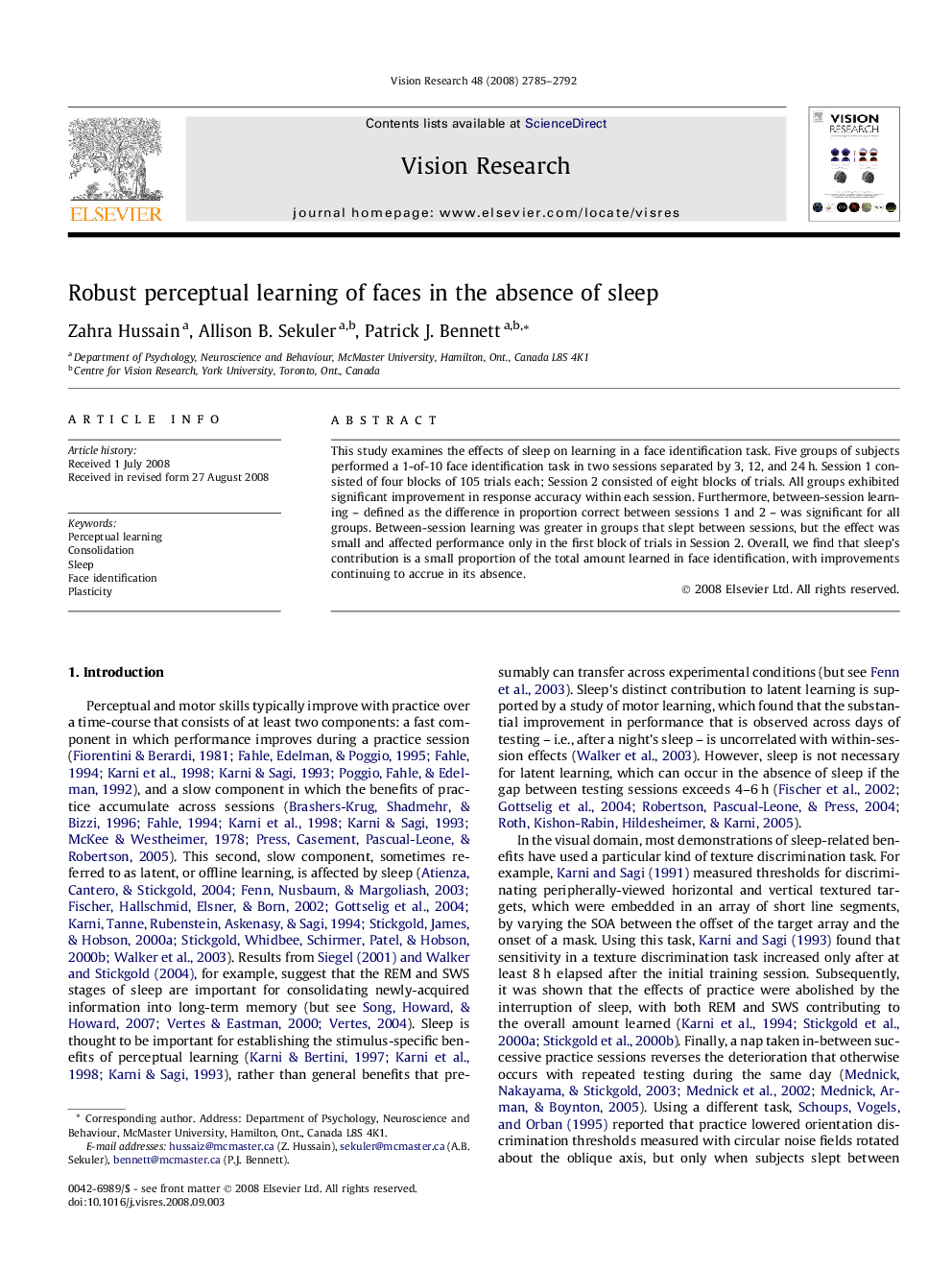| Article ID | Journal | Published Year | Pages | File Type |
|---|---|---|---|---|
| 4034843 | Vision Research | 2008 | 8 Pages |
This study examines the effects of sleep on learning in a face identification task. Five groups of subjects performed a 1-of-10 face identification task in two sessions separated by 3, 12, and 24 h. Session 1 consisted of four blocks of 105 trials each; Session 2 consisted of eight blocks of trials. All groups exhibited significant improvement in response accuracy within each session. Furthermore, between-session learning – defined as the difference in proportion correct between sessions 1 and 2 – was significant for all groups. Between-session learning was greater in groups that slept between sessions, but the effect was small and affected performance only in the first block of trials in Session 2. Overall, we find that sleep’s contribution is a small proportion of the total amount learned in face identification, with improvements continuing to accrue in its absence.
